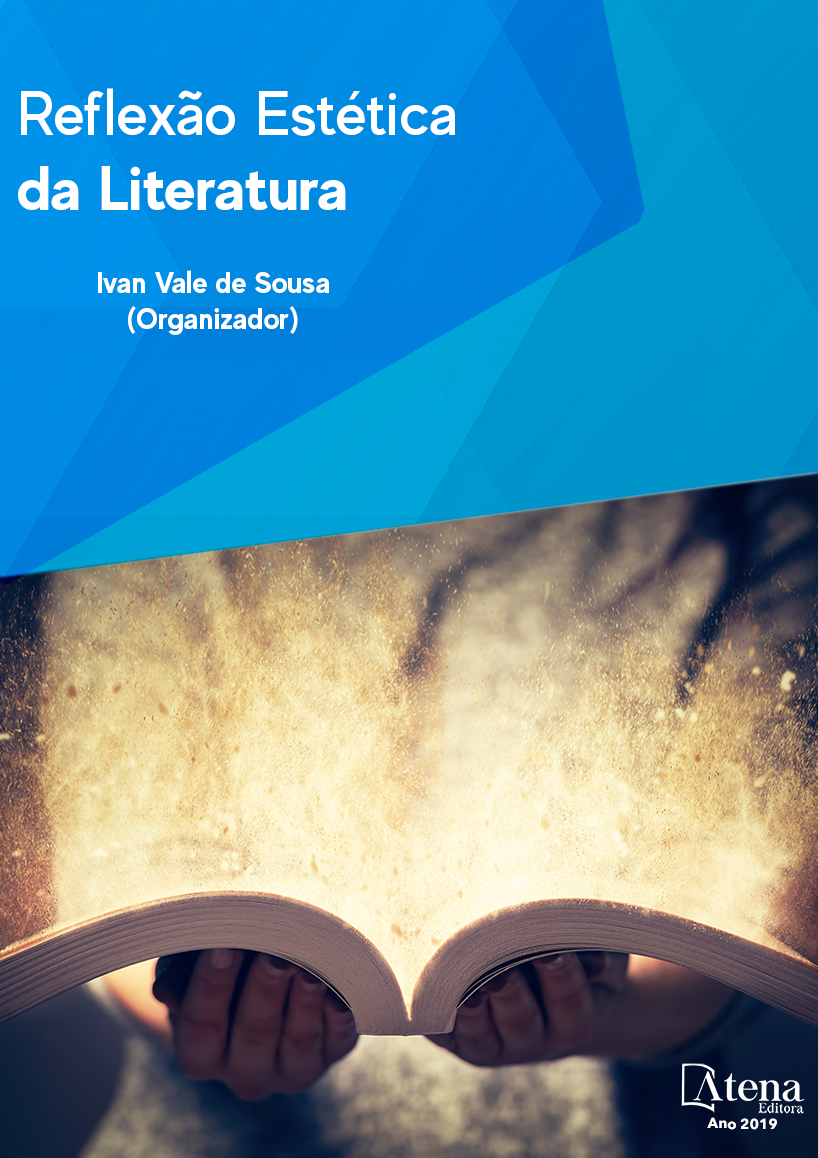
O LIVRO-JOGO COMO ATRATIVO LITERÁRIO PARA ALUNOS DO ENSINO FUNDAMENTAL
O presente artigo busca relatar e
inspirar outros docentes do Ensino Fundamental
II quanto à aplicação do livro-jogo em sala
de aula. O estudo em questão é focado na
disciplina de Língua Portuguesa e constituiu
um importante relato de caso por trabalhar com
leitura e jogo em sala de aula a fim de oferecer
aulas mais práticas e lúdicas de produção
textual. A ideia de jogo utilizada teve como base
os estudos de CAILLOIS (1990) e HUIZINGA
(1971), especificamente o RPG - fundamentado
em ANDRADE F. (2006) - e o livro-jogo -
embasado em ALVES (1997), ANDRADE, M. R.
D. (2007), GONÇALVES; RODRIGUES (2013),
PEREIRA; MARTINS; CARMO (2013) e KATZ
(c1998-2019) - usando outras experiências
pedagógicas como base, como as de CHAGAS;
SOVIERZOSKI; CORREIA (2017) e ZAGAL;
LEWIS (2015). O conceito de adaptação teve
como fonte HUTCHEON (2013). Pode-se
perceber que os alunos demonstraram maior
interesse pela matéria e que boas produções,
mesmo sendo mais complexas que exercícios
de redação padronizados, puderam ser obtidas
dos discentes. Com isso, o livro-jogo mostrouse
um importante atrativo literário para a sala
de aula e uma possível alternativa para captar
novos leitores desinteressados pelo que lhes é
oferecido pela escola.
O LIVRO-JOGO COMO ATRATIVO LITERÁRIO PARA ALUNOS DO ENSINO FUNDAMENTAL
-
DOI: 10.22533/at.ed.2831925068
-
Palavras-chave: Livros-jogos; Produção textual; Leitura; Literatura
-
Keywords: Gamebooks; Writing; Reading; Literature
-
Abstract:
The current article seeks to report
and inspire other teachers of Elementary School
regarding the application of the gamebook in
the classroom. The study in question is focused
on the discipline of Portuguese Language and
constituted an important case report for working
with reading and playing in the classroom in
order to offer more practical and playful classes
of textual production. The idea of game used was
based on the studies of CAILLOIS (1990) and
HUIZINGA (1971) - specifically the RPG, based
on ANDRADE F. (2006) – and the gamebook
– based on ALVES (1997), ANDRADE, M.
R. D. (2007), GONÇALVES, RODRIGUES
(2013), PEREIRA, MARTINS, CARMO (2013) e
KATZ (c1998-2019) -, using other pedagogical
experiences as a base, such as those of
CHAGAS, SOVIERZOSKI, CORREIA (2017)
and ZAGAL, LEWIS (2015). The concept
of adaptation had HUTCHEON (2013) as a
source. It can be noticed that the students showed more interest in the subject, and
good productions, even more complex than standardized writing exercises, could be
obtained from the students. With this, the gamebook has proved to be an important
literary attractive for the classroom and a possible alternative to capture new readers
disinterested in what is offered to them by the school.
-
Número de páginas: 15
- Pedro Panhoca da Silva


